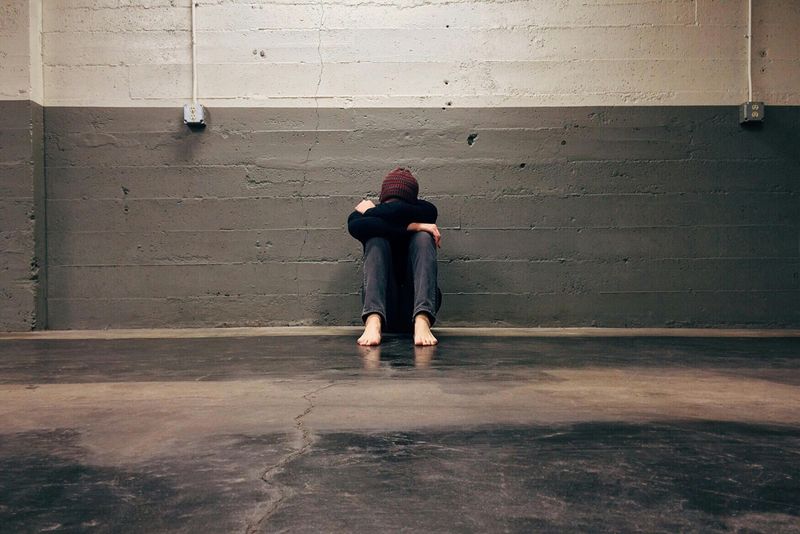When your partner suddenly pulls away, it can feel confusing and hurtful. You might wonder if you did something wrong or if the relationship is falling apart. Understanding why men distance themselves can help you make sense of these difficult moments. Psychologists have identified several common reasons behind this behavior that have nothing to do with you and everything to do with how men process emotions and stress.
1. Emotional Overwhelm and Stress

Life gets heavy sometimes, and when pressures pile up from work, money problems, or family issues, many men retreat into themselves. Unlike sharing feelings openly, they prefer working through challenges privately.
Dr. David Posen explains that when life becomes too demanding, relationships often take a backseat. Men typically handle stress by creating mental space to think clearly without adding emotional conversations to their plate.
This withdrawal is not about losing interest in you. Instead, it represents his way of protecting both himself and the relationship from his current struggles. Giving him room to breathe while staying supportive can make a real difference during these tough times.
2. Fear of Vulnerability

Opening your heart completely can feel terrifying, especially for men raised to believe showing emotions equals weakness. Society teaches boys to be tough and hide their feelings, creating adults who struggle with emotional honesty.
Researcher Brené Brown reminds us that vulnerability means showing up authentically without knowing the outcome. For many men, this concept feels like losing control or appearing inadequate. Rather than risk judgment or rejection, they build walls and create distance.
This protective behavior stems from deep-rooted fears, not lack of caring. When men learn that sharing feelings strengthens rather than weakens relationships, they slowly become more comfortable letting their guard down.
3. Desire for Independence

Everyone needs breathing room, and men especially value maintaining their individual identity within relationships. When togetherness starts feeling like losing themselves, they instinctively pull back to reclaim personal space.
Relationship therapist Esther Perel highlights the delicate balance between closeness and independence in modern love. Partners want deep connection while preserving their unique selves. Too much closeness without boundaries can trigger withdrawal as men seek to rediscover their autonomy.
This distancing is not rejection but rather a healthy need for balance. Encouraging separate hobbies, friend time, and personal pursuits actually strengthens relationships by allowing both partners to remain whole individuals who choose togetherness.
4. Uncertainty About Feelings

Sorting through complicated emotions takes time, and men often need solitude to figure out what they truly feel. When relationships intensify quickly, confusion can set in about whether feelings match the pace of commitment.
Dr. Helen Fisher notes that men frequently require reflection periods to understand their emotional state, especially when relationship intensity increases. Rather than discussing half-formed thoughts, they prefer processing internally until clarity emerges.
This introspective phase might look like disinterest but actually shows thoughtfulness about the relationship’s future. Patience during these moments allows him to reach honest conclusions rather than rushing into decisions he might regret. Clear feelings develop with time and space.
5. Fear of Commitment

Commitment represents permanence, and for some men, that word triggers panic about losing freedom or failing at something important. The closer a relationship moves toward serious territory, the stronger the urge to escape becomes.
Dr. Pat Love observes that commitment awakens fears of vulnerability and trapped feelings in certain men, causing withdrawal even when they genuinely value their partner. Past relationship failures or watching parents’ difficult marriages can intensify these worries.
Understanding this fear helps separate his internal struggle from your worth as a partner. Some men eventually overcome commitment anxiety through reassurance and gradual steps, while others need professional help addressing deeper issues before moving forward.
6. Testing the Relationship

Sometimes distance becomes a test to measure how much you care or whether the relationship can survive challenges. This subconscious behavior seeks proof of your commitment through your reaction to his withdrawal.
Men who feel insecure about being loved might create distance to see if you chase them or simply walk away. Your response provides information about the relationship’s strength and your true feelings. While immature, this testing often stems from past hurts or abandonment fears.
Recognizing this pattern helps you respond thoughtfully rather than playing games. Honest conversation about insecurities beats manipulation every time, creating authentic connection built on trust rather than tests that damage relationships.
7. Emotional Unavailability

Past trauma, unresolved pain, or personal challenges can leave some men unable to engage emotionally in relationships. They keep connections superficial, avoiding depth that requires vulnerability they cannot offer.
Dr. Seth Meyers explains that emotionally unavailable men maintain surface-level relationships, dodging situations demanding emotional investment. Previous heartbreak, childhood wounds, or fear of repeating painful patterns keeps them locked behind protective barriers. No amount of love from you can fix what only they can heal.
Recognizing emotional unavailability early saves heartache down the road. You deserve someone capable of meeting you emotionally, not someone requiring you to settle for crumbs while hoping they eventually change.
8. Miscommunication and Assumptions

Not every withdrawal signals serious problems—sometimes mismatched expectations or poor communication skills create perceived distance where none truly exists. What looks like pulling away might simply be different communication styles clashing.
Men and women often express needs differently, leading to misunderstandings when assumptions replace actual conversations. He might think everything is fine while you sense distance because neither person clearly stated their expectations or feelings.
Before panicking about his distance, try direct communication about what you both need and expect. Many relationship problems dissolve quickly when partners stop assuming and start asking questions. Clear, honest dialogue prevents small misunderstandings from becoming major issues that damage trust unnecessarily.

Comments
Loading…